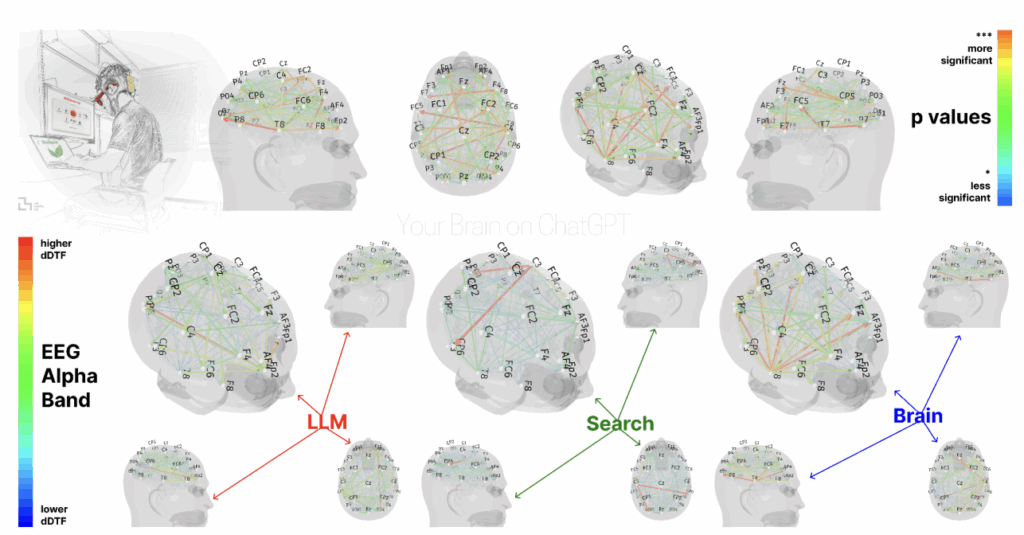Is ChatGPT Really Ruining Our Brains?
Generative AI has become a part of daily life for millions. We use it to edit emails, brainstorm ideas, write essays, and even as a coach or therapist. But as we outsource more of our thinking to AI, some have begun to wonder: are we paying a hidden price?
A recent MIT study has fueled this debate, with headlines questioning whether ChatGPT could be ruining your brain. People are worried this technology is eroding critical thinking. Others argue these claims are just fear-mongering.
What does the science actually say? As a neuroscientist, I can help break it down. Let's take a close look at what this study found (and what it didn't).

What the Study Showed
Over several months, MIT researchers asked 54 students to write a series of essays. The participants were divided into three groups:
- AI Group: using ChatGPT for assistance
- Search Group: using Google without AI help
- Brain-Only Group: writing without any tools
Each participant wrote three essays under their assigned condition. In a fourth session, some people switched methods (e.g., ChatGPT users then wrote without AI, and vice versa).
During the writing process, researchers tracked brain activity using EEG headsets. They also tested participants' memory of their essays, evaluated the quality of the essays (using human teachers and an AI model), and asked participants how much the essays felt like their own work.
Key Findings:
Based on these findings, the researchers argued that over-relying on AI tools could lead to "cognitive debt"—a kind of mental deficit where people fail to engage deeply enough to learn or remember.
Limitations of the Study
This is an interesting study, but there are important caveats to keep in mind.
Important Limitations: The authors themselves highlight several limitations. The study had a small sample size of only 54 participants, almost all from elite universities, making it hard to generalize to broader populations.
Participants wrote short essays under tight time constraints (20 minutes each), which doesn't reflect how people use AI in everyday life. The study also only looked at short-term effects, not whether long-term AI use would change brain function.
In reality, people tend to use AI more flexibly than the rigid instructions given to the AI group, who were told to rely solely on AI. The task itself (writing an SAT-style essay) may not represent other types of thinking or learning where AI might be used differently, such as in coding or creative brainstorming.
This doesn't mean the results aren't valuable! But they reflect a very specific setup and can't really be seen as proof that AI is inherently bad for our brains.
How to Keep Your Brain in the Loop
What can we realistically take away from this study? While the findings don't prove that ChatGPT will harm your brain, they are a useful reminder to be mindful when using AI tools.
Conclusion
The MIT study offers a fascinating glimpse into how our brains respond to AI assistance. But it also had narrow, artificial parameters. Writing a 20-minute essay with an EEG headset in a lab is not the same as using AI in daily life.
The real question is not whether you should use AI, but how you use it. Like any tool, it can either sharpen or dull your skills depending on your approach.
Keep your brain in the loop, and AI can be a powerful partner, not a crutch.
